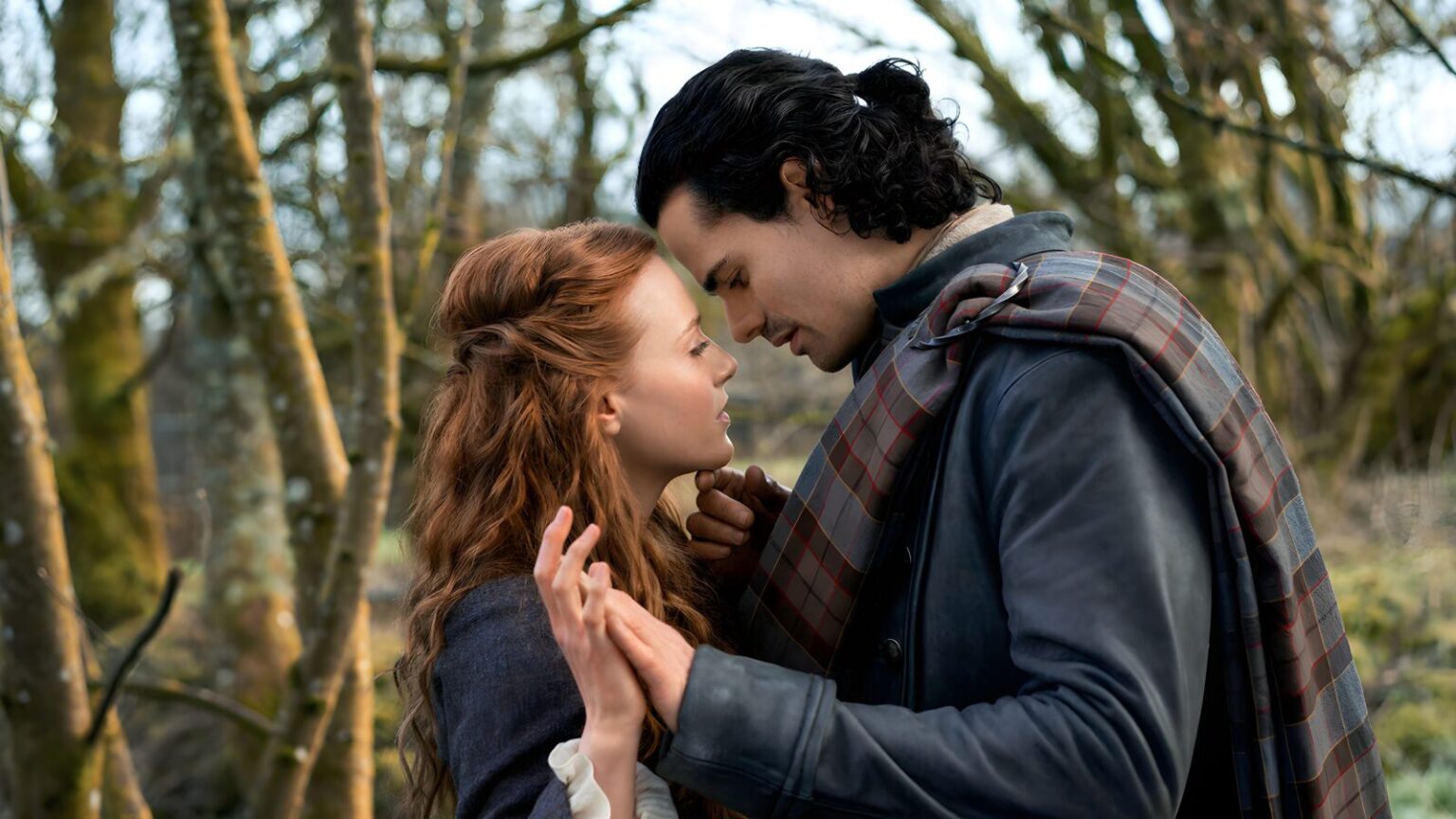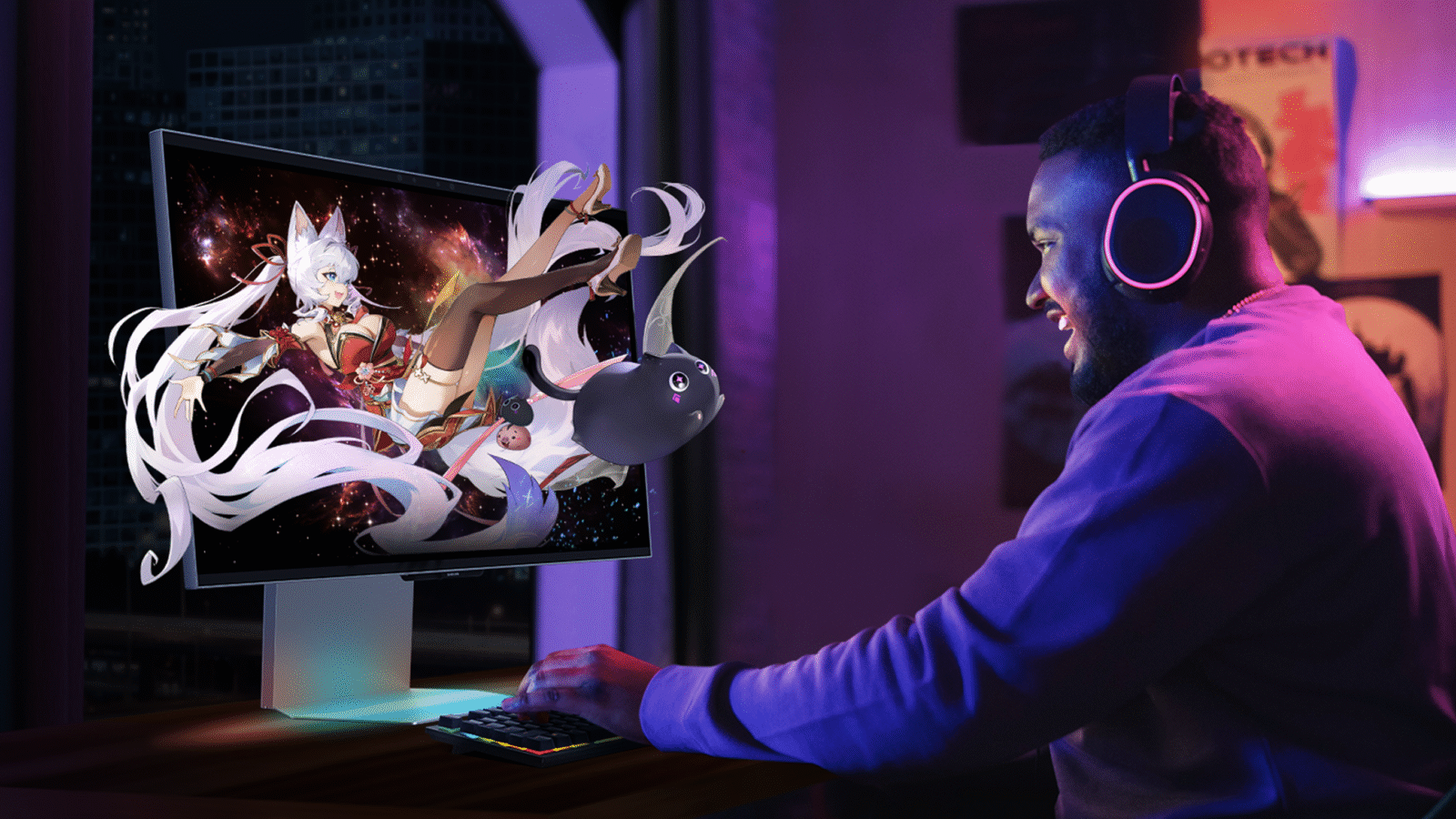TL;DR: If Outlander makes you feel things you don’t want to unpack in therapy, Blood of My Blood will rip your heart out, whisper sweet Gaelic nothings into it, and hand it back with a letter soaked in trench mud. And you’ll thank it.
Outlander: Blood of My Blood
There’s a particular kind of madness that comes with being an Outlander fan. It’s not just the swoon-worthy Scottish accents or the gratuitously scenic panning shots of the Highlands. No, it’s the heartbreak of being emotionally gutted by time travel mechanics you can’t argue with, the moral spirals of characters who just can’t stop making devastatingly hot decisions, and the sheer audacity of this franchise to keep pulling us deeper, like Claire through a stone circle. And here we are again, with Blood of My Blood, the prequel we didn’t know we needed but devoured like bannocks after a long day at Leoch.
Let me start with this: I did not expect to care this much. Prequels are dicey territory—nine times out of ten, they feel like candle-lit fan fiction, stretching lore thinner than a Jacobite’s chances at Culloden. But Blood of My Blood? It doesn’t just work. It breathes. It bleeds. It burns. And at its best, it reminds me exactly why I fell in love with this time-hopping disaster of a romance epic in the first place.
A Dual-Timeline Fever Dream That Shouldn’t Work… But Does
The series opens with two stories running in parallel. On one side, 1714 Scotland, freshly rocked by the death of Red Jacob MacKenzie, who leaves behind three children—and a political powder keg. The focus here is Ellen MacKenzie (Harriet Slater), who isn’t just “Jamie Fraser’s mum” anymore. She’s an actual human woman with agency, grief, and fire in her belly. She’s stuck between brothers fighting over power and alliances, with her own future being eyed like a piece of strategic livestock. Enter Brian Fraser (Jamie Roy), the bastard son of Simon Fraser, Lord Lovat (played by Tony Curran with the swagger of a rotting lion). He’s charming, rugged, and, crucially, not supposed to be anywhere near Ellen. So naturally, sparks fly and plots thicken.
Meanwhile, across time and an entire war, we land in the trenches of World War I. Henry Beauchamp (Jeremy Irvine) is watching the world implode in mud and mustard gas. Julia Moriston (Hermione Corfield), stationed at the Postal and Telegraph Censorship Office, intercepts one of his letters. And from that intercepted prose, something unlikely grows: connection, tension, the tiniest sliver of hope. If Ellen and Brian are about feuding clans and forbidden sex, Henry and Julia are about intellectual intimacy and letters that hold more tenderness than entire novels.
It’s ambitious. Too ambitious, maybe. But god, when it clicks? It sings.
Ellen and Julia Deserve Their Own Damn Revolutions
Let’s talk about the women. This show—blessedly—understands that history has a habit of flattening women into wives, pawns, or tragic backstory scaffolding. Blood of My Blood doesn’t stand for that. Ellen and Julia are not just romantic interests or maternal placeholders. They are the emotional core, the moral tension, and the damn point.
Ellen is political by necessity, fierce in a way that feels earned, not performative. She understands how power moves in a patriarchal world and tries, clumsily but fiercely, to carve a space for herself in it. She’s not a rebel for rebellion’s sake—she’s pragmatic, smart, and trying to survive a system that is actively trying to grind her down.
Julia, on the other hand, is intellect embodied. She’s a woman whose every move is calculated, not cold, but carefully constrained by the world she lives in. Watching her fall for Henry through censored letters feels like a Victorian novel exploded into modern television: yearning, subtle, dangerous.
And then comes the twist. Time travel. Again.
Yes, it happens. Julia steps through the stones, pregnant with Henry’s child. Not a metaphor. Not a tease. An actual rip in the timeline that suddenly reframes everything we knew about Claire’s ancestry. It’s a move so audacious it could have wrecked the show. But somehow, it works. And the implications? Oh, they’re delicious.
Fan Service or Fan Mastery?
This could’ve easily slipped into hollow nostalgia—”Look! It’s Murtagh, but young and with less beard!” Instead, the prequel gets something crucially right: it honors the echoes of the original without becoming a museum exhibit. Yes, the casting choices are eerie in their parallels. Brian looks enough like Jamie to give you pause. Corfield’s Julia has the same wide-eyed fire as Claire. But it’s not imitation—it’s inheritance.
You feel the DNA of the original show pulsing through every storyline: the yearning, the moral complexity, the impossible choices, the sex that’s so good it makes you mad. And the production quality? Chef’s kiss. Costuming, battle scenes, music—everything is prestige-tier.
The Sex is Hot, the Stakes Are Higher
Yes, it’s steamy. Did you think it wouldn’t be? But what sets Outlander: Blood of My Blood apart is how it earns its intimacy. The sex is not just window dressing—it’s storytelling. When Ellen and Brian finally crash into each other, it’s not just lust—it’s rebellion, grief, vulnerability, and trust. When Henry and Julia flirt through typewritten redactions, it’s foreplay soaked in tension and intellect.
Is it all perfect? No. Sometimes, the pacing drags. The dual timelines don’t always feel balanced. Henry and Julia’s arc, for all its lyrical beauty, occasionally feels too emotionally distanced, like we’re watching from behind a pane of glass. And there are moments when the writing veers into melodrama—when the music swells a bit too obviously, when a character says something you know was meant to be quotable, but comes off clunky.
But somehow, even those flaws feel earned. Because this isn’t a show afraid to feel too much.
Time Travel, Again?! Yes. And It Slaps.
Let’s not tiptoe around it: the time travel reveal could’ve been a disaster. Again? That’s the general vibe from fans burned by convoluted timelines (looking at you, Season 4). But here, it doesn’t just exist to stir drama—it deepens character. Julia’s decision to go through the stones is devastating, heroic, and deeply Outlander. It reframes what we know about Claire, about legacy, about how this show always ties the personal to the mythic.
It also sets up potential for the next season to go completely feral—and I am here for it.
Final Thoughts from a Chronically Devoted Viewer
I didn’t think Blood of My Blood could pull this off. I figured it would be a decent side dish—something to tide us over until Season 8 shows up with Sam Heughan’s furrowed brows and time-bending sex trauma. But this? This is a full-course meal. Emotional, risky, occasionally messy, and deeply satisfying.
The show respects its audience. It knows we’ve been here a while. It knows we’ve wept, raged, time-traveled, and thirsted through centuries. And it offers us something rare: a prequel that doesn’t just explain the past. It makes us feel it.
FINAL VERDICT:
Outlander: Blood of My Blood isn’t just a prequel—it’s a full-bodied, emotionally intelligent, and unexpectedly gutsy story that stands firmly on its own. It captures everything that makes Outlander what it is: sweeping romance, historical tragedy, women refusing to be sidelined, and time travel that actually punches you in the gut. Prequels don’t get better than this.






